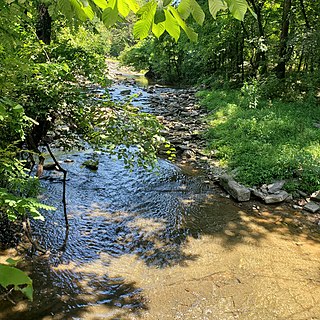 W
WGeorge Michael Bedinger was a U.S. Representative from Kentucky, uncle of Henry Bedinger.
 W
WDaniel Boone was an American pioneer and frontiersman whose exploits made him one of the first folk heroes of the United States. Boone became famous for his exploration and settlement of what is now Kentucky, which was then beyond the western borders of the Thirteen Colonies. Despite resistance from American Indians, for whom Kentucky was a traditional hunting ground, in 1775 Boone blazed the Wilderness Road through the Cumberland Gap and into Kentucky. There he founded Boonesborough, one of the first English-speaking settlements west of the Appalachian Mountains. By the end of the 18th century, more than 200,000 people had entered Kentucky by following the route marked by Boone.
 W
WSquire Maugridge Boone Jr. was an American frontiersman, longhunter, soldier, city planner, politician, land locator, judge, politician, gunsmith, miller, and brother of Daniel Boone. In 1780, he founded the first settlement in Shelby County, Kentucky. The tenth of eleven children, Squire Boone was born to Squire Boone Sr. and his wife Sarah (Morgan) Boone in Berks County, Pennsylvania, at the Daniel Boone Homestead. Although overshadowed by his famous brother, Squire Boone was well known in his day.
 W
WJoseph Bowman, born Joseph Lawrence Bowman, was a frontier, Virginia state militia officer, during the American Revolutionary War. He was second-in-command, during Colonel George Rogers Clark's 1778 military expedition to capture the Illinois Country, in which Clark and his men seized the key British-controlled towns of Kaskaskia, Cahokia, and Vincennes. Following the 1779 campaign and defeat of the British forces, in Vincennes, Bowman was critically injured in an accidental gunpowder explosion and subsequently died of his wounds. He was the only American officer killed during the 1778-1779 Illinois campaign. Joseph Bowman kept a daily journal of his trek from Kaskaskia to Vincennes, which is one of the best primary source accounts of Clark's victorious campaign.
 W
WGeorge Rogers Clark was an American surveyor, soldier, and militia officer from Virginia who became the highest-ranking American patriot military officer on the northwestern frontier during the American Revolutionary War. He served as leader of the militia in Kentucky throughout much of the war. He is best known for his celebrated captures of Kaskaskia (1778) and Vincennes (1779) during the Illinois Campaign, which greatly weakened British influence in the Northwest Territory. The British ceded the entire Northwest Territory to the United States in the 1783 Treaty of Paris, and Clark has often been hailed as the "Conqueror of the Old Northwest".
 W
WDavid Glenn was of Irish descent and was born in 1753, likely in Pennsylvania but possibly in Virginia. He was one of the early settlers of Kentucky having accompanied James Harrod in founding Harrodstown in 1774, along with his older brother, Thomas. Today, Harrodsburg is considered the oldest permanent white settlement in Kentucky, being it was settled almost a full year before Boonesborough.
 W
WThomas Glenn was among the first pioneers to venture into the Western Virginia and Kentucky territories. He was born in 1750 in present-day Pennsylvania, married before 1770 and settled in present-day Wheeling, West Virginia by 1774, but possibly earlier. He was part of an advanced detachment of John Floyd's survey expedition before joining James Harrod's party in founding Harrodstown, the earliest permanent white settlement west of the Appalachians, along with his younger brother David Glenn. Together they explored a large portion of Kentucky in the 1770s making several improvements from Frankfort down to Russell Springs.
 W
WJames Harrod was a pioneer, soldier, and hunter who helped explore and settle the area west of the Allegheny Mountains. Little is known about Harrod's early life, including the exact date of his birth. He was possibly underage when he served in the French and Indian War, and later participated in Lord Dunmore's War. He also rose to the rank of colonel in the local militia.
 W
WRichard Henderson was an American jurist, land speculator and politician who was best known for attempting to create the Transylvania Colony in frontier Kentucky. Henderson County and its seat Henderson, Kentucky are named for him. He also sold land to an early settlement that went on to become Nashville, Tennessee.
 W
WBenjamin Logan was an American pioneer, soldier, and politician from Shelby County, Kentucky. As colonel of the Kentucky County, Virginia militia during the American Revolutionary War, he was second-in-command of all the militia in Kentucky. He was also a leader in Kentucky's efforts to become a state. His brother, John Logan, was the first state treasurer of Kentucky.
 W
WIsaac Shelby was the first and fifth Governor of Kentucky and served in the state legislatures of Virginia and North Carolina. He was also a soldier in Lord Dunmore's War, the American Revolutionary War, and the War of 1812. While governor, he led the Kentucky militia in the Battle of the Thames, an action that was rewarded with a Congressional Gold Medal. Counties in nine states, and several cities and military bases, have been named in his honor. His fondness for John Dickinson's "The Liberty Song" is believed to be the reason Kentucky adopted the state motto "United we stand, divided we fall".
 W
WThomas Todd was an associate justice of the Supreme Court of the United States from 1807 to 1826. Raised in the Colony of Virginia, he studied law and later participated in the founding of Kentucky, where he served as a clerk, judge, and justice. He was married twice and had a total of eight children. Todd joined the U.S. Supreme Court in 1807 and his handful of legal opinions there mostly concerned land claims.